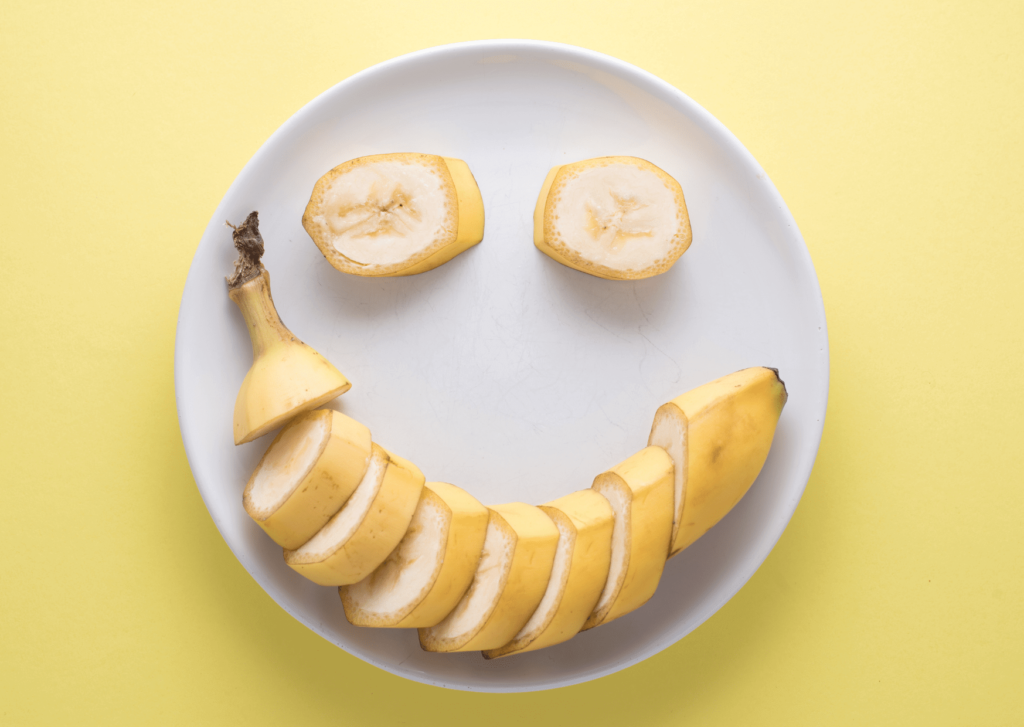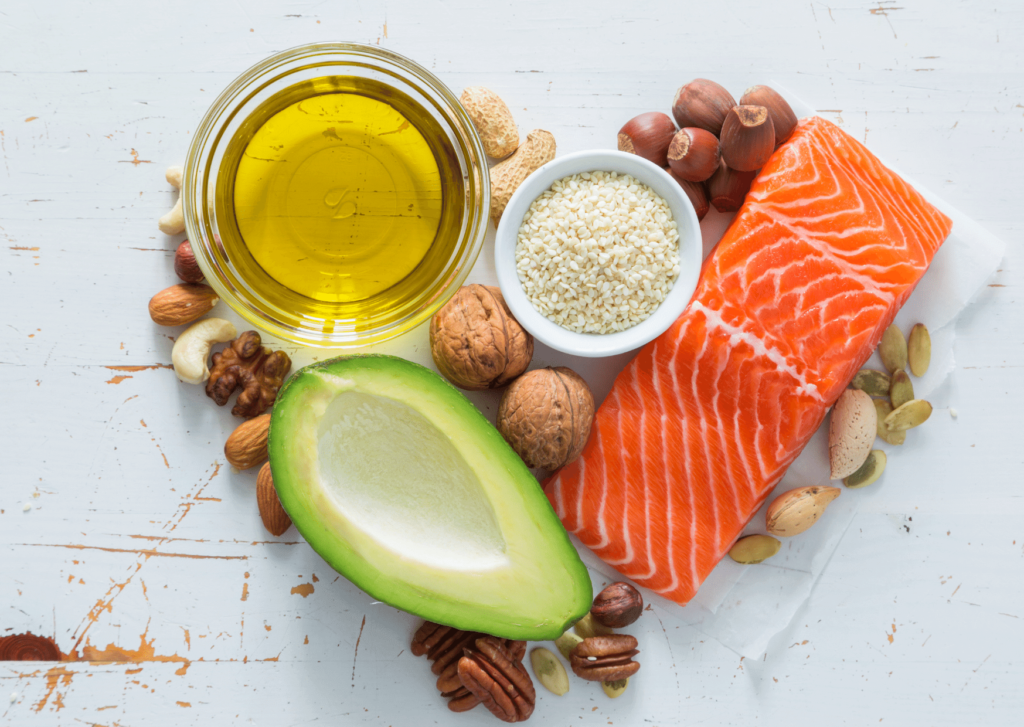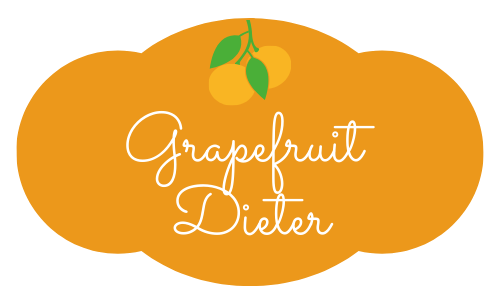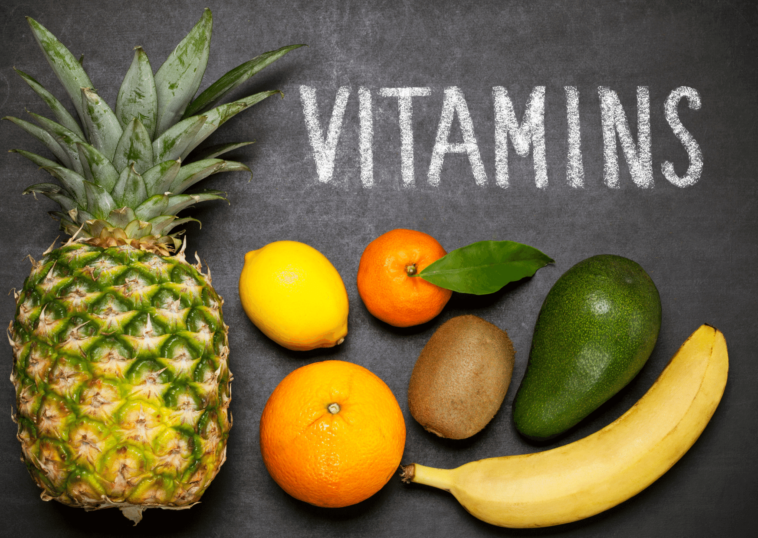Vitamins are organic substances that are required for vital bodily functions. However, they cannot be produced by the human organism itself. In order to optimally supply the body with vitamins and prevent deficiency symptoms, we must have a vitamin rich diet or through dietary supplements.
Vitamins are naturally found in our food such as fruit, vegetables and bread. In order to get enough vitamins daily through the diet, it is important to eat healthy and varied foods.
13 Vitamins your body needs
There are thirteen different vitamins, four of which are fat-soluble and nine are water-soluble.
The fat-soluble vitamins are vitamin A , vitamin D , vitamin E and vitamin K. They are primarily found in the fat of food and can be stored in the tissues of your body.
The water-soluble vitamins are vitamin B1, vitamin B2, niacin (vitamin B3), pantothenic acid (vitamin B5), vitamin B6, biotin, folic acid, vitamin B12, and vitamin C. These vitamins are found in the liquid that is present in food.
The body cannot store them (with the exception of B12). Hence, the excess of water soluble vitamins leaves your body through urine and it is important to continually supplementing your body with water-soluble vitamins.
Summary
Vitamin A (retinol)
Good for your eyesight
Vitamin A helps maintain a normal moisture balance in your eyes and is necessary to keep your eyesight.
Supports your immune system
Vitamin A has a positive influence on your immune system and thus ensures, among other things, a good immune system.
Important for your skin
Vitamin A supplies your skin from within and also helps keep it healthy. This vitamin also supports the healing power of your skin.
Good for your mucous membranes
Vitamin A is good for maintaining the normal structure and function of the mucous membranes in your lungs and intestines.
Recommended daily requirement
As an adult, you need 800 mcg of vitamin A per day. If you are breastfeeding, the recommendation is 1100 mcg per day. The maximum amount is 3000 mcg per day.
Did you know that …

Vitamin B1 (thiamine)
Supports your energy level
Vitamin B1 (thiamine) helps to release the energy from fats, carbohydrates and proteins from food and thus activates the natural energy in your body.
Good for your heart
Vitamin B1 has a beneficial effect on your heart. It contributes to its normal function.
Contributes to your brain function
Vitamin B1 helps your memory function. This vitamin is also good for your ability to concentrate and your learning performance.
Important for your nervous system
Vitamin B1 has a positive influence on the functioning of your nervous system.
Recommended daily requirement
As an adult, you need 1.1 mg of vitamin B1 per day. If you are pregnant or breastfeeding, the recommendations are 1.4 mg and 1.7 mg of vitamin B1 per day.
Did you know that …
- Vitamin B1 is found primarily in meat (goods), grain and dairy products?
- Vitamin B1 makes up part of the vitamin B complex, which consists of several separated vitamins?
Vitamin B2 (riboflavin)
When tired
Vitamin B2 (riboflavin) has a beneficial effect on the reduction of tiredness and exhaustion, contributes to your fitness and helps to release the energy from your food.
Good for your nerves
Vitamin B2 has a positive influence on the functioning of your nervous system.
Takes care of your skin
Vitamin B2 helps nourish your skin from the inside and is good for your mucous membranes.
Cell protective
Vitamin B2 helps your body cells to protect themselves against external influences.
Good for your eyesight
Vitamin B2 supports the condition of your eyes and helps you keep seeing clearly.
Recommended daily requirement
As an adult, you need 1.1-1.5 mg (for women and men) of vitamin B2 per day.
Did you know that …
- Milk (products), meat (products), vegetables, fruit and cereal products are important sources of vitamin B2?
- a dietary supplement that contains vitamin B2, causes a noticeable yellow discoloration of the urine and is completely harmless?
Vitamin B3 (Niacin)
Supports your energy level
Niacin helps release the energy from fats, carbohydrates and proteins from food, thus activating natural energy in your body.
Important for the skin and brain
Supports the healing power of your skin and ensures the maintenance of healthy skin from the inside out. Niacin is also good for your mucous membranes.
Niacin helps your brain function properly. This vitamin is also good for your ability to concentrate and your learning performance.
When tired
Niacin can help reduce lack of energy and fatigue, so you can feel energized again.
Important for your nervous system
Niacin has a positive effect on the functioning of your nervous system.
Recommended daily requirement
As an adult, you need 13-17 mg (for women and men) niacin per day. The maximum limit for niacin is set at 900 mg per day.
Did you know that …
- Can your body produce niacin from tryptophan itself? This amino acid is naturally present in your body. You can also get niacin mainly from meat, fish, grain products, vegetables and fruit.
- You can use niacin to feel fit quickly after an operation?

Vitamin B5 (Pantothenic acid)
Promotes your energy metabolism
Pantothenic acid (vitamin B5) helps to release the energy from fats, carbohydrates and proteins from your food and activates the natural energy in your body.
Supports in stressful situations
Pantothenic acid contributes to mental performance and supports you in stressful times.
Helps with fatigue
Pantothenic acid contributes to your fitness and has a beneficial influence on the reduction of tiredness and exhaustion.
Recommended daily requirement
As an adult, you need 5 mg pantothenic acid per day. No safe upper limit has been set as there are almost no known side effects from high pantothenic acid intake.
Did you know that …
- Pantothenic acid is mainly found in meat, fish, eggs, potatoes, milk (products), vegetables and fruit?
- Pantothenic acid is also involved in the production of hormones such as the anti-stress hormone (cortisol) and the sex hormones (testosterone and progesterone) as well as in the formation of vitamin D?
Vitamin B6 (pyridoxine)
Making red blood cells
Vitamin B6 (pyridoxine) is important for making your red blood cells.
Supports your energy level
Vitamin B6 plays a role in the build-up and breakdown of proteins and carbohydrates (sugars) and contributes to your normal energy balance and your energy supply during excercise.
Contributes to your hormonal activity
Vitamin B6 helps regulate hormonal activity in your body.
Provides good defenses
Vitamin B6 is important for the production of immune cells and has a positive influence on your immune system.
Good for your memory and your nerves
Vitamin B6 is good for mental balance, improves concentration and learning, and is good for your memory and state of mind. Vitamin B6 is also important for your nervous system.
Contributes to your fitness
Vitamin B6 helps to reduce tiredness and exhaustion.
Recommended daily requirement
As an adult, you need 1.5-1.8 mg (for women and men) of vitamin B6 per day. The safe maximum limit is 25 mg per day.
Did you know that …
- the safe maximum limit of vitamin B6 of 25 mg is only reached if you were to eat 10 kilograms of potatoes or 65 bananas?

Vitamin B8 (biotin)
Biotin helps to release energy from fats, carbohydrates and proteins and activates the natural energy in your body.
Good for your hair and nourishes your skin
Biotin is good for maintaining shiny hair and keeping your hair strong. Also, biotin helps keep your skin healthy and is good for your mucous membranes.
Good for your memory and your nerves
Biotin is good for your mental balance, improves your concentration and learning performance, and is good for your memory and mood. Biotin is also important for your nervous system.
Recommended daily requirement
As an adult, you need 40 mcg of biotin per day. There are no known side effects from a high intake of biotin and no upper limit has been set.
Did you know that …
- Biotin is found in many different foods? Think of eggs, milk, soy products and nuts.
Vitamin B9 (Folic acid)
Contributes to blood cell production
Folic acid helps your body make red and white blood cells.
Helps with the cell division process
Folic acid plays a role in the process of tissue growth and development in your body.
Supports your immune system
Folic acid ensures good defenses.
Good for your memory and focus
Folic acid is good for your memory, concentration, mood, and learning performance. In addition, folic acid contributes to the resistance to stress.
Contributes to fitness
Folic acid helps lessen your tiredness and exhaustion.
Helps during your pregnancy
Folic acid contributes to the growth of your unborn child during pregnancy.
Recommended daily requirement
As an adult, you need 300 mcg of folic acid per day. If you are pregnant or breastfeeding, you will need 400 mcg of folic acid per day. The maximum safe limit of folic acid for all adults is 1000 mcg.
Did you know that …
- Folic acid from a dietary supplement is absorbed 30-50% better by your body than folic acid from vegetables or potatoes, for example?
Vitamin B12 (cobalamin)
Making red blood cells
Vitamin B12 (cobalamin) is important for the production of your red blood cells.
Helps with the sharing process
Vitamin B12 plays a role in the process of tissue growth and development in your body.
Contributes to fitness
Vitamin B12 helps reduce your tiredness and fatigue.
Supports the energy level
Vitamin B12 helps to release energy from fats, carbohydrates and proteins and activates the natural energy in your body.
Provides good defenses
Vitamin B12 has a positive impact on your immune system.
Good for your memory and your nerves
Vitamin B12 is good for mental balance, improves concentration and learning, and is good for your memory and state of mind. Vitamin B12 is also important for your nervous system.
Recommended daily requirement
As an adult, you need 2.8 mcg of vitamin B12 per day. If you are pregnant or breastfeeding, you will need 3.8 mcg of vitamin B12 per day. There are no known side effects from high intake of vitamin B12, so no maximum limit has been set.
Did you know that …
- Vegetarians and vegans often also use additional vitamin B12? Vitamin B12 is mainly found in animal products such as milk, eggs, meat and fish.

Vitamin C (ascorbic acid)
Preservation of strong vessel walls
Vitamin C (ascorbic acid) is important for the good condition of your blood vessels. It is beneficial for the flexible veins and supports the maintenance of strong vessel walls.
Good for your skeleton
Vitamin C supports your bones and is important for healthy cartilage. The vitamin is also important in maintaining the health of your teeth.
Supports your energy level
Vitamin C helps release energy from your food from fats, carbohydrates and proteins and activates the natural energy in your body.
Stimulates iron absorption
Vitamin C increases iron absorption and thus the iron content in your blood.
Provides good defenses
Vitamin C has a positive impact on your immune system. Vitamin C helps to maintain strong defenses in a cold environment and has the function of an antioxidant.
Fights radicals
Vitamin C helps to protect your body cells against external influences and thus ensures the maintenance of healthy cells and healthy tissue.
Good for your memory and your nerves
Vitamin C is good for your mental balance, improves your concentration and learning, and is good for your memory and state of mind. Vitamin C is also important for your nervous system.
Contributes to fitness
Vitamin C helps you reduce tiredness and fatigue.
Recommended daily requirement
As an adult, you need 75 mg of vitamin C per day. If you are pregnant or breastfeeding, 85 mg and 100 mg of vitamin C per day are recommended. The maximum amount is set at 2000 mg per day.
Did you know that …
- You would have to eat 33 oranges to get 2000 milligrams of vitamin C per day?
- Your body excrete excess vitamin C in your urine?
- Vitamin C ensures better iron absorption
Vitamin D3 (cholecalciferol)
Good for your skeleton
Vitamin D3 (cholecalciferol) contributes to the normal absorption of calcium and phosphate in your blood and increases the absorption of calcium into the bones so that you get strong bones. Vitamin D3 is also important for your teeth.
Good for the cell division process
Vitamin D3 plays a role in the process of tissue growth and development.
Provides good defenses
Vitamin D3 has a positive impact on your immune system.
Good for your muscles
Vitamin D3 plays a role in maintaining flexible and strong muscles.
Recommended daily requirement
As an adult, you need 10 mcg of vitamin D per day. If you are over 70 years of age, you need 20 mcg of vitamin D per day. The maximum dosage is 100 mcg per day.
Did you know that …
- The health department recommends seniors and people with a darker skin color to take additional vitamin D (via a dietary supplement) to strengthen their bones?
Vitamin E (tocopherol)
Cell protective
Vitamin E has an antioxidant effect and thus helps to protect your body cells against external influences such as air pollution and sunlight.
Is necessary for the maintenance of muscle functions. Stabilizes unsaturated fatty acids and cell membranes.
Recommended daily requirement
As an adult, you need 8-10 mg (for women and men) of vitamin E per day. If you are pregnant or breastfeeding, 10 mg and 11 mg of vitamin E per day are recommended. The maximum dosage for vitamin E is 300 mg per day.
Did you know that …
- You can find this vitamin mainly in vegetable oils, grains, nuts, seeds, vegetables and fruits. Vegetable fats (oils, margarine), nuts, oily fish (salmon, herring, mackerel)

Vitamin K (phylloquinone)
Supports your blood clotting
Vitamin K (phylloquinone) helps keep your blood clotting well.
Good for your skeleton
Vitamin K is good for maintaining strong bones.
Recommended daily requirement
As an adult, you need 90-120 mcg (for women and men) of vitamin K per day. There is no maximum limit set for vitamin K.
Did you know that …
- You can find vitamin K in green vegetables (spinach, kale, cauliflower), as well as animal liver.



